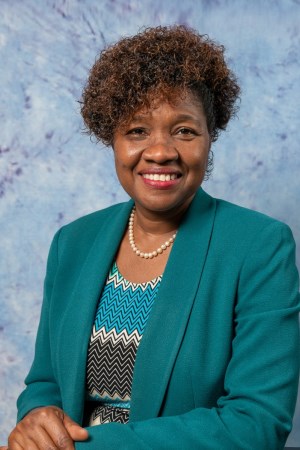Public Primary School Principals Criticize Ministry of Education Treatment and Indignity: APPSP President

The Association of Public Primary School Principals criticizes Ministry of Education treatment, citing indignity, sudden reassignments, and exclusion from job interviews. Concerns raised over breaches of Public Service Act.
The Association of Public Primary School Principals (APPSP) on Monday lambasted the Ministry of Education, claiming principals are being treated like “chattel” and subjected to indignity.
In an interview with Barbados TODAY, APPSP president Olwin Walker expressed a range of concerns, including sudden reassignments, exclusion from job interviews, and delays in salary payments.
She contended that these actions breach the Public Service Act, particularly Section 12.3 (a)(iv), which relates to human dignity.
On the sudden reassignments, Walker declared: “It is unfair. We are not treating our principals as though they are human, we are treating them like chattel and it is sad. But this is what you do with chattel, it is moveable; there is no consideration.”
According to the APPSP, 11 public primary school principals were informed of their reassignments just last Thursday evening, giving them only one day to prepare for new roles before staff meetings.
Walker argued that this practice breaks from past norms, where principals would typically be consulted a term in advance of transfers. If this could no longer be facilitated, she said, a month’s notice along with consultation would be adequate time to inform principals they would be headed to a different school.
“It is a lot to expect an individual to go into a new environment and pick up and start to function, keep the system rolling and be effective,” she said.
Walker said one of the matters that has caused “unprecedented distress” among the association’s members is the appointment of principals.
“For several years, APPSP has indicated that to have over 40 principals acting in the post was untenable. During June 2024, the Ministry [of Education] along with personnel from the Ministry of the Public Service conducted interviews for the post of principal and excluded 24 of the acting principals who they deemed to be ineligible,” she explained.
“This was although every acting principal had consistently carried out their duties at each school and had received favourable reports at the end of each period of assignment. To make matters worse, it took two months before those who were given permanent appointments to the posts were notified.”
Adamant that the ministry had to explain the excluded principals, Walker added: “When are you going to call these other 24 principals and provide them with an opportunity for security of tenure?”
“If I am eligible to act, why am I not eligible to be interviewed? The ministry must provide an answer to that question,” she demanded.
The APPSP head also pointed out that those acting principals who were interviewed but did not get any notice about being successful were unsure of their fate.
“From custom and practise, two letters would come out – one for those who were appointed and another telling the persons who were unsuccessful that they were unsuccessful,” said Walker. “But they (the latter) received no word, they are just sitting and waiting . . . . They still don’t know what their position is and they don’t know if they are on a priority list, which would indicate that if another post becomes available they would fill the post and be appointed.”
Further frustration arose from ongoing salary issues.
Walker said that during the last academic year, none of the acting principals received their correct salary for the first three to four months of their assignment.
“This is a big issue. For the last five years or more, each principal who has come on to act in September has not received their correct salary. When they get that money in a lump sum it inadvertently pushes them into a tax bracket they should not be in and they pay more money in taxes than they should,” she said.
“The association hopes that this will not be repeated this September. The ministry must resolve this matter of incorrect payment or nonpayment of principals’ salaries.”
The APPSP leader also highlighted the broader impact of the ministry’s decisions on school operations, staff morale, and the overall teaching and learning environment.
sheriabrathwaite@barbadostoday.bb


